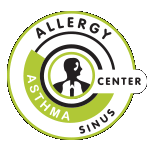Blog Layout
Local Honey for Allergies: Sweet Relief or Just Sweet?
Dr. John Overholt • Jun 01, 2019
The Pollen Counts
Local honey is very tasty. I love it on a bagel with peanut butter or in a good marinade. But should it be on your menu of allergy treatments, too?
The notion that local honey can be utilized to treat allergies is not new. In fact, it has been a common topic of conversation with my patients since my days as an allergy fellow. The idea is that a small amount of pollen carried by bees makes its way into the honey and that regular ingestion of the pollen leads to desensitization. It’s a tempting notion, to think that you could treat your allergies with a natural, sweet treat, but the reality is slightly bitter.
What if there's something about honey itself that is beneficial for allergies? This final question was answered over a decade ago....
First, the pollens that bees carry are not significant allergens. To make honey, bees collect nectar from flowering plants and in the process become coated with the pollen from these plants. As they buzz from plant to plant, they spread the pollen, which allows the flowering plants to reproduce. Since these pollens are carried largely by bees and not the wind, the pollens rarely come into contact with the human nose and eyes and, hence, do not cause allergy symptoms. Conversely, plants whose pollens cause allergies are wind-pollenated and are not major sources for nectar and bee pollen.
Second, oral immunotherapy doesn’t work for nasal allergies. Numerous clinical trials have looked at oral immunotherapy (swallowed allergens) as a possible treatment for this problem. These trials used large doses of purified allergens, far more than would ever be found in bee pollen, and still failed to show a benefit. (Note: this is different from sublingual immunotherapy where the allergen is held under the tongue). So, even if allergy-causing pollens are found in honey, the act of swallowing them is unlikely to improve allergies.
What if there’s something about honey itself that is beneficial for allergies? This final question was answered over a decade ago by researchers in Connecticut who did a blind, randomized trial comparing the effects of local, unfiltered, unpasteurized honey, commercial honey, and honey-flavored corn syrup on seasonal allergies. They found no benefit for either honey group compared to the corn syrup group.
In other words, honey is, literally and figuratively, a simple sugar pill.
You might also like
TRUST THE EXPERTS
All physicians board-certified in allergy and immunology

The Allergy, Asthma & Sinus Center
801 Weisgarber Road • Suite 200
Knoxville, TN 37909
P. 865-584-0962 • 1-866-231-0701
F. 865-584-6384
© 2024
All Rights Reserved | The Allergy, Asthma & Sinus Center



